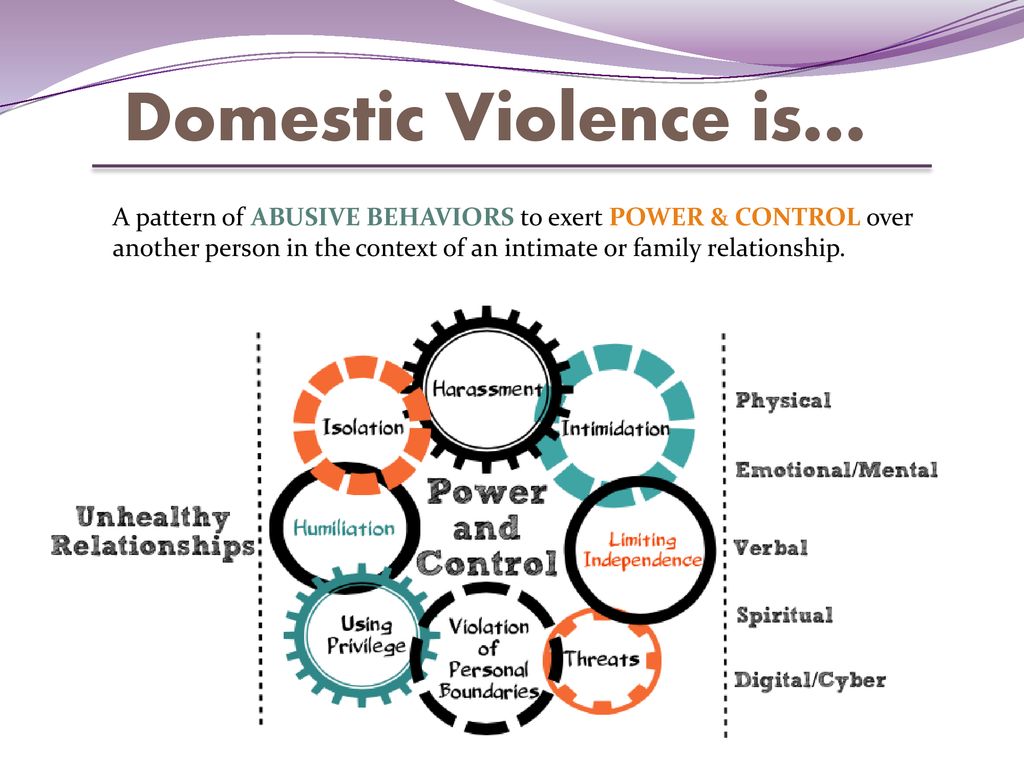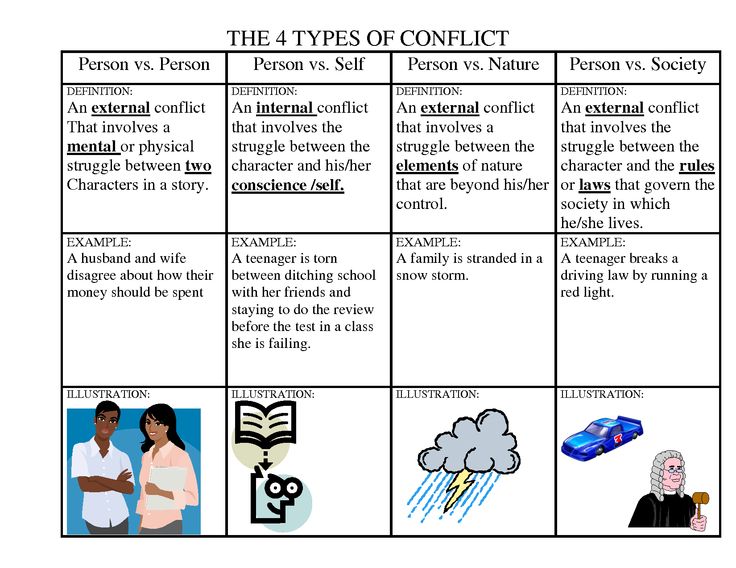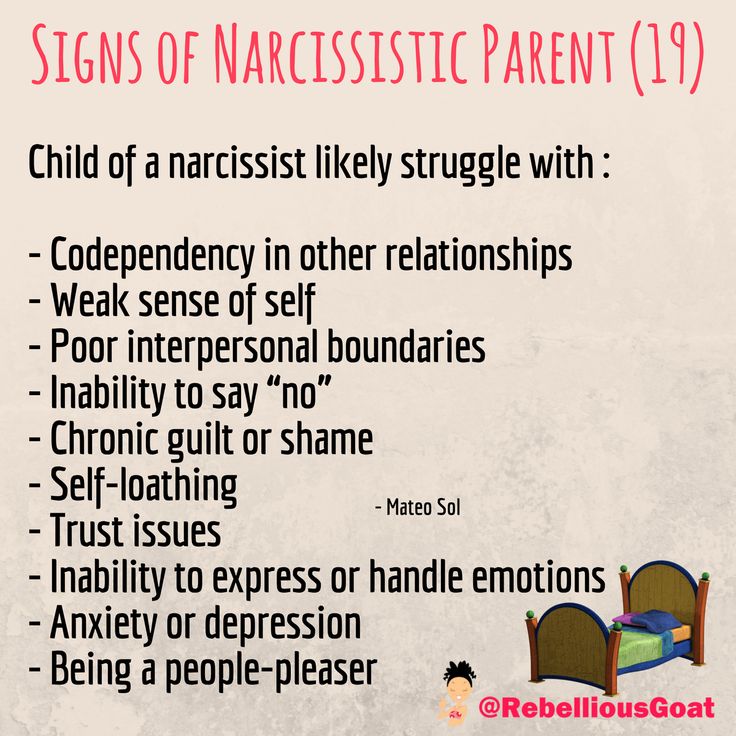Grey stone method
What it is and how to use it effectively
The grey rock method is a tactic some people use when dealing with abusive or manipulative behavior. It involves becoming as uninteresting and unengaged as possible so that the abusive person loses interest.
Some people anecdotally report that it reduces conflict and abuse.
The idea behind the technique is that abusive people, especially those with narcissistic tendencies, enjoy getting a reaction from their victims. Refusing to give them this reaction makes interactions less rewarding. There is no research to confirm that it works.
This article examines the grey rock method in more detail, including what it is, how people use it, and its risks. It also provides other strategies for dealing with abuse, along with support resources.
To “grey rock” a person involves making all interactions with them as uninteresting and unrewarding as possible. In general, this means giving short, straightforward answers to questions and hiding emotional reactions to the things a person says or does.
Some people use the grey rock method with those they suspect of having narcissistic personality disorder (NPD). People with NPD may use others as a source of attention, manipulating them to get a specific reaction that bolsters their ego.
The idea behind grey rocking is that it will, in theory, cut off a person’s “narcissistic supply” and cause them to lose interest in their target.
The grey rock method vs. social withdrawal
People experiencing abuse sometimes withdraw from others in their lives. This is distinct from grey rocking, as it is not an intentional method of self-preservation. Instead, it is the result of the abuse harming a person’s mental health.
People may withdraw from friends and family due to feelings of shame, isolation, or a sense that nobody will believe them. They may also withdraw if they feel loyal to the perpetrator and do not want to hear negative criticism of them.
Grey rocking only applies to the relationship with the abuser. If a person becomes withdrawn more generally, they may be in distress.
If a person becomes withdrawn more generally, they may be in distress.
People use the grey rock method to reduce the harm of emotional abuse. Emotional abuse includes a range of tactics that either deliberately harm a person or exploit them to the benefit of the perpetrator. Some examples include:
- intentionally humiliating someone in front of others
- calling them names
- deliberately making a person feel worthless or unsafe
- attempting to control another person’s behavior
- isolating them from friends or family
- gaslighting them, which involves making a person question their experience of reality or feel “crazy”
No published research has assessed how well the grey rock method works, whether it reduces abuse, or how it affects the behavior of abusive people. As a result, it is hard to know whether it reliably works or is safe.
Anecdotal evidence suggests that people who implement the technique may be better able to detach from abusive individuals. Grey rocking may also give abusive individuals fewer opportunities to exploit others.
Grey rocking may also give abusive individuals fewer opportunities to exploit others.
In theory, grey rocking a person with NPD is meant to cause them to lose interest in the target of their behavior. However, grey rocking is a relatively new concept. As a result, there is no research assessing whether the grey rock method produces this result.
Anecdotally, people who try the grey rock method report the following reactions from those with suspected or confirmed NPD:
- confusion
- frustration
- boredom
- anger
In some cases, people report that an abusive person becomes affectionate and warm in an attempt to make the victim reconsider their approach. Some refer to this as “love bombing.”
However, the abusive person might also try to draw their target back into their life by creating a crisis or enlisting the support of others. Some call this technique “hoovering.”
There are also some potential risks of the grey rock method.
There is no research on the risks of the grey rock method. However, so long as a person remains in contact with an emotionally abusive person, there is always a risk that they will experience abuse.
However, so long as a person remains in contact with an emotionally abusive person, there is always a risk that they will experience abuse.
Some other potential risks include:
Escalation
If the abusive person does not get what they want from an interaction, they may increase their efforts to get it instead of backing down. This is known as escalation.
The abusive person may intensify their old methods of getting a reaction from someone, or they may try new tactics. This could involve increasingly manipulative, invasive, or aggressive behavior.
Escalation is common in abusive relationships and can progress to physical violence.
Fatigue and frustration
Grey rocking another person requires immense self-control, especially if that person is very abusive or interacts with their victim regularly. This may be mentally draining and difficult to sustain.
If an abusive person senses that their victim cannot keep it up or feels that they will eventually react, they may continue their behavior anyway.
Impact on mental health
Suppressing and hiding emotions from an abusive person may be useful as a temporary measure for avoiding their attention. However, when a person lives with the perpetrator, this could result in them having to hide their feelings all the time.
This may be difficult, especially if a person is stressed, angry, or afraid and has no way of safely expressing it. If they are isolated from friends or family, not being able to talk about or process how they feel may affect their mental health.
The grey rock method is not a long-term solution to abuse, particularly for people who live with the perpetrator. It may temporarily help someone avoid abusive behavior until they are in a position to leave the situation or relationship. It could also help people who must have contact with the abusive person.
For example, a person might find grey rocking helpful for dealing with manipulative coworkers, ex-partners, or relatives they do not live with. In these situations, it may help set boundaries or shorten interactions. However, there is no guarantee that the grey rock method will work.
In these situations, it may help set boundaries or shorten interactions. However, there is no guarantee that the grey rock method will work.
Some techniques a person might use when grey rocking include:
- giving short, noncommittal, or one-word answers
- keeping interactions short
- avoiding arguing, no matter what someone says or does to provoke it
- keeping personal or sensitive information private
- showing no emotion or vulnerability
- minimizing contact, such as by waiting long periods of time before responding to texts or leaving a call as quickly as possible
The specific approach a person uses may vary depending on the situation. For example, a person who knows her mother wants to find a way to insult her weight may avoid discussing clothing or appearance.
The grey rocking technique is not the only method for dealing with emotional or psychological abuse. A person may try other techniques, such as:
Emotional self-careProtecting one’s emotional safety is important for reducing the effects of abuse. A person can try:
A person can try:
- practicing positive self-talk and self-compassion
- taking time for themselves
- creating a quiet space where they can feel safe
- spending time with supportive, loving people
- seeking help from a supportive therapist or counselor
Social support
Having a support network can help a person in many ways. A support network can acknowledge the person’s feelings and experiences and give them an emotional outlet.
People can find social support by:
- telling trusted loved ones about the abuse
- joining a support group, either online or in person
- spending time with loved ones away from the perpetrator
A person who lives with their abuser should protect their privacy by deleting online search histories and avoiding seeking support on shared devices.
Safety planning
The only way to guarantee that abuse will stop is to avoid all contact with the person. People experiencing abuse should seek professional help and, if possible, develop a plan to safely leave the relationship.
Developing a safety plan can help a person leave an abusive situation or relationship, even when they cannot do so immediately. Safety plans can also reduce the risk of serious harm when a person must stay. Some important techniques include:
- keeping potential weapons locked away
- avoiding wearing things that abusive people could use as a weapon, such as scarves or jewelry
- meeting with a lawyer or financial planner
- assembling a “go-bag” if a person must leave immediately
- finding a new place to live
The National Domestic Violence Hotline offers an interactive safety planning tool.
Legal assistanceA person’s legal options depend on where they live and who is abusing them. A domestic partner or spouse may have to pay child support or split property with a victim when the victim leaves. A family law attorney can advise about a person’s rights in this situation.
A person may also be able to seek a restraining order to prohibit contact and punish a person should they seek contact anyway. Contact a local attorney for guidance.
Contact a local attorney for guidance.
A person should seek legal advice and help from domestic abuse experts if they need to leave an abusive situation.
Anyone who experiences emotional turmoil because of the behavior of another should consider seeking psychological support.
If you or someone you know is in immediate danger of domestic violence, call 911 or otherwise seek emergency help. Anyone who needs advice or support can contact the National Domestic Violence Hotline 24/7 via:
- phone, at 800-799-7233
- live chat, at thehotline.org
- text, by texting LOVEIS to 22522
Many other resources are available, including helplines, in-person support, and temporary housing. People can find local resources and others classified by demographics, such as support specifically for People of Color, here:
- The Office on Women’s Health
- The National Coalition Against Domestic Violence
Grey rocking is one of many techniques that people use to protect themselves from abuse. It involves becoming as uninteresting as possible to the abusive person. This may require a person to hide their feelings, avoid revealing personal information, and minimize contact.
It involves becoming as uninteresting as possible to the abusive person. This may require a person to hide their feelings, avoid revealing personal information, and minimize contact.
Sometimes, people use the grey rock method when interacting with people they believe have NPD. However, a relationship can be harmful regardless of whether a person has a personality disorder and whether the abuse is intentional.
It is unclear whether the grey rock method reliably works. It may have risks, as so long as a person is in contact with a perpetrator, they may experience abuse. If a person cannot get some distance from the abusive person, they should consider getting professional support.
Read this article in Spanish.
What this Method is and How To Do It (and when not to)
Jump to section
What is the grey rock method?
When to try grey rocking
When to avoid the grey rock method
The risks of grey rocking
How to use the grey rock method
Grey rocking at work
When you think of a grey rock, words like plain and neutral likely come to mind. Grey rocks blend in and don’t draw your attention. But that’s not always a bad thing.
Grey rocks blend in and don’t draw your attention. But that’s not always a bad thing.
When dealing with toxic people in both life and the workplace, becoming like a grey rock is exactly what you want to do. Grey rocking is an effective strategy that helps you reduce unwanted focus from negative or challenging individuals.
How, you ask? By not responding to their toxic behavior when you’re around them.
Let’s examine the grey rock method in more detail, why it works, and how to use this technique in the workplace.
What is the grey rock method?
Grey rocking is a technique used to divert a toxic person’s behavior by acting as unresponsive as possible when you’re interacting with them. For example, using the grey rock method involves deliberate actions like avoiding eye contact or not showing emotions during a conversation.
The idea behind this technique is that toxic people feed on your reaction. A narcissistic coworker, for example, feeds on conflict, drama, and attention.
By making yourself and your interactions with them as neutral as possible, they’ll eventually lose interest. Your lack of response will have them looking for someone else to target and project onto. Or, ideally, give up the damaging behavior.
Grey rocking is a strategy that some mental health professionals recommend to clients who have a toxic person in their life.
According to Nadene van der Linden, a clinical psychologist at the Massachusetts Association for Psychoanalytic Psychology, the grey rocking technique can be used in response to abusive, controlling, and manipulative behaviors. Van der Linden teaches her clients how to use it appropriately when they deal with negative behaviors.
When to try grey rocking
When someone in your life acts in a way you perceive as toxic, you may choose to distance yourself from them.
For instance, say you have a friend who constantly has you walking on eggshells. In this instance, walking away from them is something you might want to consider.
Choosing to only surround yourself with people that boost you up will improve your self-worth and emotional well-being.
However, walking away from a toxic person isn’t always possible. Take your workplace, for example. Working with a difficult colleague or manager isn’t ideal, but being around them may sometimes be unavoidable.
That’s where the grey rocking technique comes into play.
Grey rocking can be used when interacting with a toxic person is required to meet your work objectives. The end goal is to maintain boundaries and stop the negative behavior.
Here are a few types of people with whom using grey rocking in the workplace can be effective:
- A narcissistic colleague who regularly gaslights you
- A leader who displays toxic behavior
- A team member with a negative attitude who likes to insult and belittle their peers
- A manipulative colleague who likes to start workplace drama
- A manager who doesn’t promote psychological safety in the workplace
When to avoid the grey rock method
Let's face it, being a grey rock probably isn't what you aspire to. If you find yourself grey-rocking more often than not, something needs to change.
If you find yourself grey-rocking more often than not, something needs to change.
When it comes to toxic workplace behavior, grey rocking isn’t always the best solution. You have a right to expect a safe and productive environment in which to work.
For example, sexual harassment and discrimination of any kind are grounds for termination. In these cases, being unresponsive and detached might be necessary in the moment if you feel unsafe, but isn’t an appropriate long-term response. Reach out to your manager or your human resources department, and voice your concerns.
If someone at work displays threatening behavior or breaches company policies, it’s important to take firmer action than the grey rocking method.
Grey rocking should always be a short-term response to irritating or manipulative behaviors. You shouldn’t have to permanently change who you are in order to fit in or feel safe.
On the other hand, some people aren’t necessarily toxic, just annoying. Grey-rocking can subtly shift their attention and energy elsewhere. If it doesn't, consider if more formally disengaging with them will be productive in the longer term.
Grey-rocking can subtly shift their attention and energy elsewhere. If it doesn't, consider if more formally disengaging with them will be productive in the longer term.
Sometimes, having a conversation with them and finding common ground is all it takes to make you feel more at ease with someone and even bond with them.
The risks of grey rocking
The practice of grey rocking isn’t without its risks. Before you try it out for yourself, it’s important to understand the potential drawbacks of using this method and how they can affect you.
Escalated behavior
The main goal of grey rocking is to protect yourself and stop a toxic person from antagonizing you. Ideally, your lack of engagement will make them lose interest and move on.
Unfortunately, grey rocking can sometimes backfire. Instead of losing interest, your lack of engagement can frustrate them. As a result, they may escalate their negative behaviors in order to get a response out of you.
For example, a manipulative colleague who you’ve grey rocked can resort to coercive behavior to get a reaction from you. This can include physical harassment like invading your personal space to make you feel threatened or humiliating you in front of peers.
This can include physical harassment like invading your personal space to make you feel threatened or humiliating you in front of peers.
When grey rocking doesn’t work, you need to find a better course of action to resolve the conflict. This can involve seeking help from your supervisor and setting clear boundaries with the person involved.
Psychological effects
Grey rocking requires you to emotionally detach while you’re interacting with a toxic person. If they say something to wind you up, for instance, you’ll have to fight your urge to react in any way and not take their bait.
This causes you to suppress your emotions, which can affect your mental health. Emotional regulation helps us regulate our emotions to stay cool and collected. However, as studies show, when we continually suppress them, it’s dangerous for our emotional and cognitive health.
For these reasons, grey rocking is not a sustainable long-term solution to toxic behavior.
How to use the grey rock method
So how do you blend in and (figuratively) imitate a grey rock? Four strategies include:
- Stay neutral and disengaged
- Don’t give them your attention
- Keep interactions short and sweet
- Don’t give away personal information
Let’s break each of these down and learn how to effectively put the grey rock method into practice.
1. Stay neutral and disengaged
One of the key elements of grey rocking is not showing any emotion when you’re interacting with a toxic person. By not reacting, you’re not giving them the validation they’re looking for. You can do this by:
- Speaking in a neutral tone
- Avoiding eye contact
- Giving unemotional responses (even when provoked)
- Minimizing your body language, by having no facial expressions like smiling or frowning
Let’s say the person you’re grey rocking is trying to coax a reaction from you. In this case, you can use techniques like breathwork to stay grounded and not respond in an emotional way.
Limiting eye contact is another way to disengage. That’s because eye contact plays an important role in communication.
Eye contact helps you share what you’re feeling with another person. While this is usually a good thing that helps you bond with others, it’s not in this instance. The last thing you want to do is reveal your emotional state.
One way to avoid making eye contact is to focus on something else. For example, if a toxic colleague tries to provoke you, focus on a work task and look busy.
2. Don’t give them your attention
Toxic people, particularly narcissists, constantly need attention, praise, and validation from others. Not feeding their ego can cause them to lose interest in you.
If you do have to engage in conversation, talk about bland subjects like the weather, and don’t ask them any questions about themselves.
3. Keep interactions short and sweet
Ideally, you’ll want to limit your interactions with that person as much as possible. Whether you’re at home or in the office, encourage using the company chat instead of speaking face to face.
For example, if you’re telecommuting and they’re part of your virtual work team, you can try to keep conversations with them short. Give brief, one-word answers like “yes,” “no,” or “mhm.” Don’t elaborate more than you need to.
4. Don’t give away personal information
Avoid giving away any personal information about your life or personal opinions on topics.
For example, only discuss work-related projects and tasks with them, and avoid engaging with them on a social level.
Most importantly, you should never reveal to the person you’re grey rocking them. If they find out you’re behaving this way on purpose, this can add fuel to the fire, and they may escalate their behavior.
Grey rocking at work
Let’s explore a few examples of how and when to apply grey rocking in the workplace.
Example 1
A toxic colleague likes to push their others’ buttons (including your own) during your weekly meetings.
You notice that the more upset people get by his remarks, the more he does it. By using grey rocking, you ignore his comments and don’t give him the reaction he’s looking for. You also avoid eye contact and stop addressing him directly during the meeting.
Example 2
A colleague that likes to start office gossip comes up to your desk and tries to coax you into bad-mouthing the new hire.
You use grey rocking techniques like keeping your answers short and not giving your opinion. When they ask for your thoughts about your new colleague, you respond, “I don’t really know them,” and excuse yourself to do a work-related task.
Example 3
Someone at work verbally threatens you after you disagreed with them during a work meeting.
In this case, you should not use grey rocking, as this person is being verbally abusive and made a direct threat. In this instance, grey rocking can anger them even more and escalate the abuse.
You should report their behavior to human resources or your supervisor.
Grey rocking takes practice
Narcissism and toxic behavior can rear their ugly heads at any time, whether it’s at work or in your personal life.
The grey rocking technique can help you set boundaries and repel toxic people. While acting disengaged may seem easy, grey rocking takes a bit of skill. If you’re a naturally open and friendly person, grey rocking may require some practice on your part.
While acting disengaged may seem easy, grey rocking takes a bit of skill. If you’re a naturally open and friendly person, grey rocking may require some practice on your part.
Grey rocking is a short-term solution, and shouldn’t be used as a long-term fix. If you’re looking for sustainable ways to improve your workplace environment, here’s how BetterUp can help.
Become a gray stone, Or how to bore a psychopath
Reader Igor "Hans" Shlyakhov found an interesting text on the English site about psychopaths http://www.lovefraud.com/ about how to make the aggressor lose to you interest , translated it and kindly provided it to me for publication. Author - Skylar, subtitles - mine.
I propose to discuss the proposed tactics: it works or does not work, with whom it works, what are the features of use at different stages, have you tried something similar and what results did it give.
When it is impossible to break contact
When dealing with any manipulative and toxic people, including narcissists, psychopaths, stalkers, sociopaths, people with borderline and hysterical personality disorders - in a word, with all kinds of emotional vampires - it is usually advised, that no response is the best response to unwanted attention.
This is often true, and the method of Breaking All Contact (avoiding all communication) should always be used if possible . This is perhaps the most effective way to rid your life of the hell that regular contact with an emotional vampire plunges you into.
However, there are a number of situations in which the Break All Contact method is not possible , such as when sharing custody of a child with a toxic person. Or if a former partner is stalking you, depriving him of the right to meet can infuriate him. In such a situation refusing to answer him may be considered an insult by the psychopath . Such people may decide that they can force and compel you to respond to them, and thus satisfy their thirst for control over you.
Moreover, many of us have tried to end relationships with such a person several times, only to accept him or her back each time. They included pity and charm, and because we did not understand that this was the type of behavior that psychopaths and other unpleasant personalities use, we believed their promises to change the situation in the future or change ourselves. They know all our emotional hooks. It is easy and interesting for them to lure us back by appealing to our emotions.
They know all our emotional hooks. It is easy and interesting for them to lure us back by appealing to our emotions.
But the manipulators do not change. Basically, if you break up with a psychopath, will go to great lengths to punish you even more for daring to think you can be independent.
Even if not taken back, the most dangerous time for the victim is the initial break with the psychopath/narcissist. They become furious at being neglected. Losing control or power over a person is not only a narcissistic trauma for them, they can feel completely empty when their partner leaves them - even if they intended to kill this partner. The reason is the loss of control. All manipulators need to constantly feel in control.
That's what the Gray Stone Method is for.
Drain the source of drama
How can we get rid of this parasitic leech without causing a fit of furious revenge? The Gray Stone Method is primarily a way to push the psychopath to lose interest in you. It differs from the Break All Contact Method in that you do not openly try to avoid contact with an emotional vampire.
It differs from the Break All Contact Method in that you do not openly try to avoid contact with an emotional vampire.
Instead you allow contact, but give only boring, monotonous answers and reactions, forcing the parasite to go somewhere else in search of the source of the drama . When contact with you is consistently and predictably unsatisfactory, the psychopath's mind is set to expect boredom instead of drama. Psychopaths are addicted to drama and can't stand boredom. Over time, he will find someone else to satisfy his need for drama and find that he is drawn to you less and not at all as often. And at some point it will simply crawl away to greener pastures.
The Gray Stone Method is a way to teach a psychopath that you are a bad and unsuitable target, because you tire him and make him bored, and they cannot stand boredom.
This is how you force the manipulator to leave of his own accord.
You could say that the Gray Stone Method is a way of breaking up with a psychopath using the old "it's not about you, it's about me" excuse, the only difference is that you show it with your actions, instead of saying it with words, and the manipulator himself comes to this conclusion.
Nothing to Envy
Another reason to use the Gray Stone Method is to avoid being "prey" from the start. If you find yourself in the company of one or more narcissistic personalities, perhaps working with them, or they are members of your family, it is important to avoid activating their envy . When using the Gray Stone Method, you step into the background. They may not even remember that they met you.
If you have inadvertently attracted their attention and they have already begun to focus on you, you can still use the Gray Stone Method. Tell them you are boring. Describe your boring life. Talk about the most mundane household chores - in great detail. Some people naturally lack the halo of drama. Find such people and stay close to them when the manipulator is nearby.
Distract with broken wing
If you are forced to continue the relationship with the manipulator, the Gray Stone Method can also serve you well. People involved in joint custody of a child with a manipulative ex-spouse may use the method when the ex-spouse tries to hurt them and get them emotional.
People involved in joint custody of a child with a manipulative ex-spouse may use the method when the ex-spouse tries to hurt them and get them emotional.
It is perfectly understandable that any threat to the well-being of our children provokes tremendous fear and anxiety. Here The Gray Stone Method can be used selectively to divert attention from what is truly important to you.
In general, show no emotion in response to offensive words or behavior. The manipulator will use different tactics to find out which one will trigger a reaction. And you should respond to what is of the least importance to you. This will focus the attention of the manipulator on this aspect.
Remember, psychopaths and other manipulators have no values, so they do not understand what is valuable to us until we ourselves discover it for them . Selective Method of Gray Stone shows them the bait. In protecting our children, we can learn from Mother Nature: Parent birds with chicks have been known to mimic a broken wing when a predator roams the area. They pretend to be vulnerable in order to divert the attention of the cat from their real vulnerability - their offspring.
They pretend to be vulnerable in order to divert the attention of the cat from their real vulnerability - their offspring.
In this example, the selective Graystone Method upstages all emotions except the ones you want to display to the social predator.
Psychopaths get bored very easily. They need constant stimulation to ward off boredom. This is not the boredom that ordinary people experience, it is more like the French word ennui, which refers to an all-consuming melancholy, boredom and lethargy. Drama is the psychopath's cure for boredom. For drama, they need an audience and actors. As soon as the drama begins, they feel alive again. They are energized when they pull the strings that evoke our emotional response. Any emotion will come off as long as it is a reaction to their actions.
Psychopaths and other manipulators are addicted to power. They gain power by giving access to our emotions. They feel this keenly and need constant testing to make sure we're still under their control. They need to know that we are still willing to do what they want, make them happy and avoid their wrath. They need to create drama in order to feel the power of manipulating our emotions.
They need to know that we are still willing to do what they want, make them happy and avoid their wrath. They need to create drama in order to feel the power of manipulating our emotions.
As with any addiction, getting your dose of emotional response excites and revitalizes the psychopath. The more times he receives his "reward" for his dramatic behavior, the more his addiction grows . The reverse is also true: when the "reward" stops coming, he gets nervous. He experiences an overwhelming sense of boredom and longing and responds by creating even more drama.
If we stick to this line of behavior and do not show emotions, at some point the psychopath decides that his toy is broken. She no longer squirts emotion when he squeezes her! Most likely, he will crawl away from you in search of a new toy.
The Gray Stone Method includes a caveat: psychopaths are dangerous people, if you are in a relationship with one who has already decided to kill you, it will be very difficult to change his mind. It can already poison your food or covertly damage your car. Take all necessary precautions. In such a case, you can only hope that the Gray Stone Method will only help buy time before you can escape.
It can already poison your food or covertly damage your car. Take all necessary precautions. In such a case, you can only hope that the Gray Stone Method will only help buy time before you can escape.
Boring, poor and ugly
Psychopaths are attracted to bright, beautiful things, fast moving things and bright lights. These objects are associated by them with a sense of liveliness and alleviate his ever-present overwhelming longing. Of course, his preferred food is your emotions, but the list of what he desires is not limited to them.
He is jealous of everything beautiful, shining and sparkling that you have and wants everything that you value highly. You must hide everything that he may notice and become jealous of.
If you are beautiful, use makeup to draw bags under your eyes.
Unless you are married to the manipulator, any money or assets he covets should "disappear" into a "very bad investment" (consult your lawyer about this).
Your shiny new sports car should retire - get yourself a simple, unfussy everyday car.
If you have a great reputation, expect him to start or have already started slandering you. So don't let yourself be put in a compromising position or provoked into unstable or unhealthy behavior.
The reason he wants to take it all away from you is not necessarily because he wants it all himself, but because he wants to see the emotion on your face the moment you lose it all. The manipulator needs a show of strength, expressed in the fact that he is the person who deprived you of all this. By removing all these things from his field of vision in advance and not showing an emotional reaction to these losses, you continue to accustom him to the idea that you are the most boring person in the world, the person he will never want to be like in anything.
The origin of the Gray Stone Method
In 2009, the author of the original text broke up with her psychopathic partner after 25 years of marriage, but she still did not understand what was wrong with him.
“I was sitting at a sushi bar with mixed feelings when I saw a tall, handsome, athletic looking young man. To my surprise, I instinctively told him my whole story. He listened to me and then explained to me that I was dealing with a perverted narcissist. And he gave me advice: "Be boring."
He said that his girlfriend would come home every night and start drinking and acting in a horrible and abusive way. They were both professionals, moving in the same professional circles. He knew that she would pursue him if he decided to break up and did not want to take risks, become a victim of slander, which could damage his professional reputation.
And he decided to become so boring that she would just leave him. He refused to go out anywhere in the evenings. He showed no emotional reaction to anything and always reacted with a lack of drama. When she asked if he wanted to go out to a cafe or restaurant for dinner, his answer was: "I don't know." After a few months without drama, she moved out from him.
.. .I chose the word "grey stone" because everywhere you go there are a lot of gray stones and pebbles, but you never notice them. None of them grab your attention. You don't remember any of the single stones you saw today, because they blend into the landscape. This is exactly the type of boredom that you are going to broadcast to the manipulator. A stranger at a sushi bar made a startling observation when he advised "be boring." He got to the heart of psychopaths' motivation to avoid boredom.
There are many tricks in nature to help you survive among predators. Among others, 90,003 birds show a broken wing to protect their offspring, and mice pretend to be dead until the cat loses interest in them. Both of these tactics can be useful and can be applied as needed and appropriate.
At the same time, it is very difficult to calculate every move of a psychopath in order to choose the best course of action every time. Instead of trying to outsmart or outmaneuver him, broadcast the gray stone . This simple, unassuming object of nature has all the wisdom needed to go unnoticed - it's boring.
This simple, unassuming object of nature has all the wisdom needed to go unnoticed - it's boring.
Tags: narcissistic envy, narcissistic resource, narcissistic trophy, psychopath, sociopath, disposal site about psychopaths a curious text about how to make the aggressor lost interest in you, translated it and kindly provided me for publication. Author - Skylar, subtitles - mine.
I propose to discuss the proposed tactics: works-does not work, with who works, what are the features of use at different stages, have you tried something similar and what did it give results.
When contact is not possible
When dealing with any manipulative or toxic person, including narcissists, psychopaths, stalkers, sociopaths, people with borderline and hysterical personality disorders - in a word, with all types of emotional vampires - it is usually advised that the absence reactions are the best reaction to unwanted attention.
This is often true, and the Break All Contacts method (avoiding any communication) should always be used if it is Maybe. This is perhaps the most effective way to save your life from hell, in which regular communication with an emotional vampire immerses you.
This is perhaps the most effective way to save your life from hell, in which regular communication with an emotional vampire immerses you.
However, there are a number of situations in which the Break All method Contact is not possible, e.g. in case of separation with toxic child care person. Or if a former partner of you pursues, depriving him of the right to meet can infuriate him. AT in such a situation, refusing to answer him can be considered a psychopath like an insult. Such people can decide what they can force and force you to answer them, and thus satisfy your thirst control over you.
Moreover, many of us have tried to end relationships with such personality several times, but only then, each time to take him or her back. They included pity and charm, but because we did not understand that this is exactly the type of behavior that used by psychopaths and other unpleasant personalities, we believed them promises to change the situation in the future or change by ourselves. They know all our emotional hooks. For they are easy and interesting to lure us back by calling on our emotions.
They know all our emotional hooks. For they are easy and interesting to lure us back by calling on our emotions.
But the arms do not change. Basically, if you break up with psychopath, he will go to great lengths to punish you more stronger, for what you dare to think you can be independent.
Even if you do not take them back, the most dangerous time for the victim, the initial break with the psychopath/narcissist. They come furious at being neglected. Loss of control or power over a person for them is not only a narcissistic injury, they can feel completely empty when their partner leaves them - even if they intended to kill this partner. Reason for the loss control. All manipulators need to constantly feel control.
That's what the Gray Stone Method is for.
Drain the source of drama
How can we get rid of this parasitic leech without causing violent vengeance? The Gray Stone Method is, first of all, turn, a way to push the psychopath to lose interest in you. He differs from the Break All Contacts Method in that you do not trying to openly avoid contact with emotional vampire.
He differs from the Break All Contacts Method in that you do not trying to openly avoid contact with emotional vampire.
Instead, you allow contacts, but give out only boring, monotonous responses and reactions, forcing the parasite to go somewhere else in searching for the source of the drama. When contact with you is stable and predictably unsatisfactory, the psychopath's mind tunes in to expecting boredom from you instead of drama. Psychopaths are addicted to drama and can't bear boredom. In time he will find someone else to satisfy his need for drama and find himself drawn to less and not as often. And at some point just crawl away to greener pastures.
The Gray Stone Method is a way to train a psychopath to you are a bad and unsuitable target for persecution, because you tire and make him bored, and they cannot stand boredom. So you force the manipulator to leave of their own free will.
The Gray Stone Method can be said to be a way of breaking with psychopath with the old excuse "it's not about you, it's about me", with the only difference that you show it with your actions, instead of saying it in words, and The manipulator himself comes to this conclusion.
There is nothing to envy
Another reason to use the Gray Stone Method is the opportunity avoid falling into the role of "prey" from the start. If you find yourself in the company of one or more narcissistic personalities, you may work with them, or they are members of your family, it is important to avoid activating their envy. When using the Gray Stone Method, you step into the background. Maybe, they won't even remember that they met you.
If you have inadvertently attracted their attention and they have already begun focus on you, you can still use the Gray Method Stone. Tell them that you are boring. Describe your boring life. Talk about the most mundane household chores - in the smallest details. Some people naturally lack a halo of drama. Find these people and stay close to them when the manipulator nearby.
Distract with a broken wing
If you are forced to continue the relationship with the manipulator, Method Gray Stone can also serve you well. People, involved in joint custody of a child with a manipulative ex spouse can use the method when the former spouse (s) is trying to hurt them and breed emotions.
People, involved in joint custody of a child with a manipulative ex spouse can use the method when the former spouse (s) is trying to hurt them and breed emotions.
It is clear that any threat to the well-being of our children incredibly strong provokes fear and excitement. Here is the Gray Method Stone can be used selectively to divert attention from what is really important to you.
In general, do not show any emotion in response to offensive words and behaviour. The manipulator will use different tactics, to find out which one will trigger the reaction. And you should respond to what is of the least importance to you. This will focus the attention of the manipulator on this aspect.
Remember, psychopaths and other manipulators have no values, so they don't understand what's valuable to us until we won't find it out for them. Selective Gray Stone Method shows them the bait. In protecting our children, we can learn from mother nature: it is known that parent birds with chicks depict a broken wing when a predator roams the area. They are pretending to be vulnerable to divert the attention of the cat from their own real vulnerability - their offspring.
They are pretending to be vulnerable to divert the attention of the cat from their own real vulnerability - their offspring.
In this example, the selective Gray Stone Method backs up plan all emotions except those that you want yourself demonstrate to the social predator.
Psychopaths get bored very easily. They need constant stimulation to ward off boredom. It's not the kind of boredom that experienced by ordinary people, it's more like a French word ennui, which refers to an all-consuming melancholy, boredom and lethargy. Drama is the psychopath's cure for boredom. For drama they need an audience and actors. As soon as the drama begins, they again feel alive. Charges them when they pull the strings that evoke our emotional response. Any emotion will come down as long as it is a reaction to their actions.
Psychopaths and other manipulators are addicted to authorities. They gain power by giving access to our emotions. They feel it keenly and need constant trials to make sure we're still under them control. They need to know that we are still ready to enter according to their desires, make them happy and avoid them anger. They need to create drama in order to feel power from manipulating our emotions.
They need to know that we are still ready to enter according to their desires, make them happy and avoid them anger. They need to create drama in order to feel power from manipulating our emotions.
As with any addiction, getting your dose of emotional reactions excite and revitalize the psychopath. The more times he receives his "reward" for his dramatic behavior, the more growing dependence. The reverse is also true: when the "reward" stops act, he is nervous. He experiences an overwhelming sense of boredom and longing and responds to it by creating even more drama.
If we adhere to this line of conduct and do not show emotions, at some point the psychopath decides that his the toy is broken. She no longer squirts emotion when he squeeze it! Most likely, he will crawl away from you in search of a new toys.
The Gray Stone Method includes a warning: psychopaths are dangerous people, if you are in a relationship with one of them who is already decided to kill you, it will be very difficult to change his mind. He already can poison your food or covertly damage your car. Accept all necessary precautions. In such a case, hope follows only that the Gray Stone Method will only help win time before you can escape.
He already can poison your food or covertly damage your car. Accept all necessary precautions. In such a case, hope follows only that the Gray Stone Method will only help win time before you can escape.
Boring, poor and ugly
Psychopaths are attracted to bright, beautiful things, anything that moves fast and bright lights. These objects are associated with a sense of liveliness. and alleviate his ever-present overwhelming longing. Of course, his preferred fodder is your emotions, but the list of what he desires, they are not exhausted.
He is envious of everything beautiful, shining and sparkling that you have and want everything that you highly value. You must hide everything he can notice and start envy.
If you are beautiful, use makeup to draw bags under eyes.
If you are not married to a manipulator, any of your money or the assets he covets must "disappear" into a "very unfortunate investment" (consult your lawyer).
Your shiny new sports car should retire - get yourself a simple, unfussy everyday car.
If you have a great reputation, expect him to start or already started slandering you. So don't let us put ourselves in compromising position or provoke an unstable or unhealthy behavior.
The reason he wants to take it all away from you is not necessarily in the fact that he wants to have all this himself, but because he wants to see the emotions on your face at the moment when you are all this lose. Manipulator needs a show of strength, expressed in the fact that he is the person who deprived you of all this. By removing all these things from his field of vision in advance and not showing emotional reaction to these losses, you continue to accustom him to the idea that you are the most boring person in the world, the person who he never wants to be like him in anything.
Origin of the Gray Stone Method
In 2009, the author of the original text parted ways with her psychopathic partner after 25 years of marriage, but never realized what was wrong with him.
“I was sitting in a sushi bar with mixed feelings when I introduced myself tall, attractive young man of athletic appearance. To my Surprised, I instinctively told him my whole story. He listened to me and then explained to me that I was dealing with a perverse daffodil. And he gave me advice: "Be boring."
He said that his girlfriend came home every evening, started drinking and acting in a horrible and abusive way. They were both professionals who rotated in the same professional circles. He knew that she would pursue him if he dared to gap and did not want to take risks, become a victim of slander, which could damage his professional reputation.
And he decided to become so boring that she would just leave him. He refused to go out anywhere in the evenings. He didn't show emotional reaction to anything and always reacted with the absence drama. When she asked if he wanted to go out to a cafe or a restaurant dinner, his answer was, "I don't know." After several months without drama, she moved out of him.
...I chose the word "grey stone" because wherever you go, full of gray stones and pebbles, but you never notice them. Neither one of them does not attract your attention. You don't remember any pebble separately from those that were seen today, because they blend into the landscape. It's just the type of boredom that you are going to broadcast to the manipulator. Sushi bar stranger made a startling observation when he advised "be boring". He hit the heart of psychopaths' motivation to avoid boredom.
Nature has many tricks to survive among predators. Among others, the birds depict a broken wing, to protect their offspring, and the mice pretend to be dead until the cat lose interest in them. Both of these tactics can be useful and can be applied as needed and appropriate.
At the same time, it is very difficult to calculate every move of a psychopath, to choose the best course of action every time. Instead of, to try to outsmart or outplay him, broadcast gray stone.











